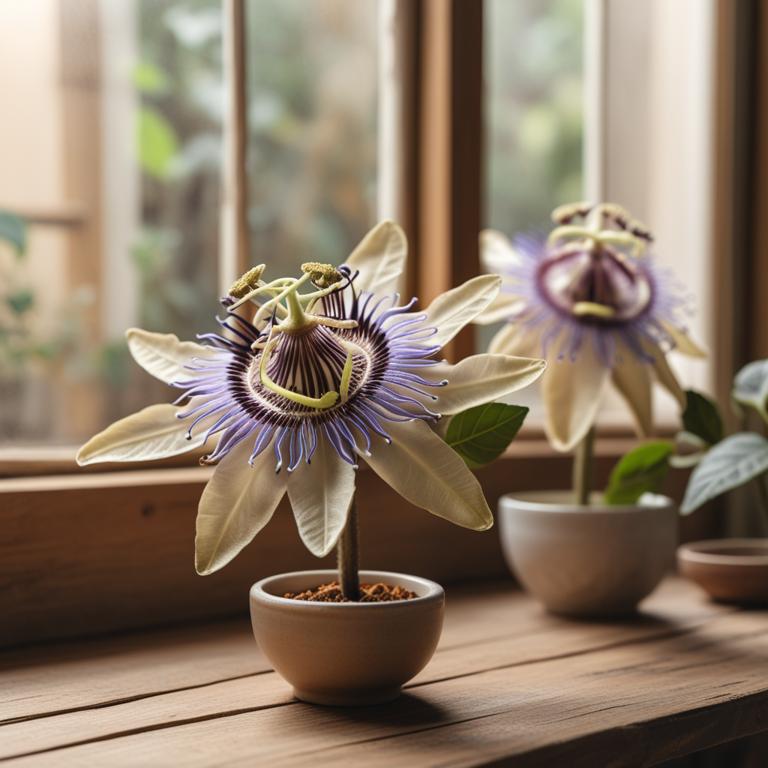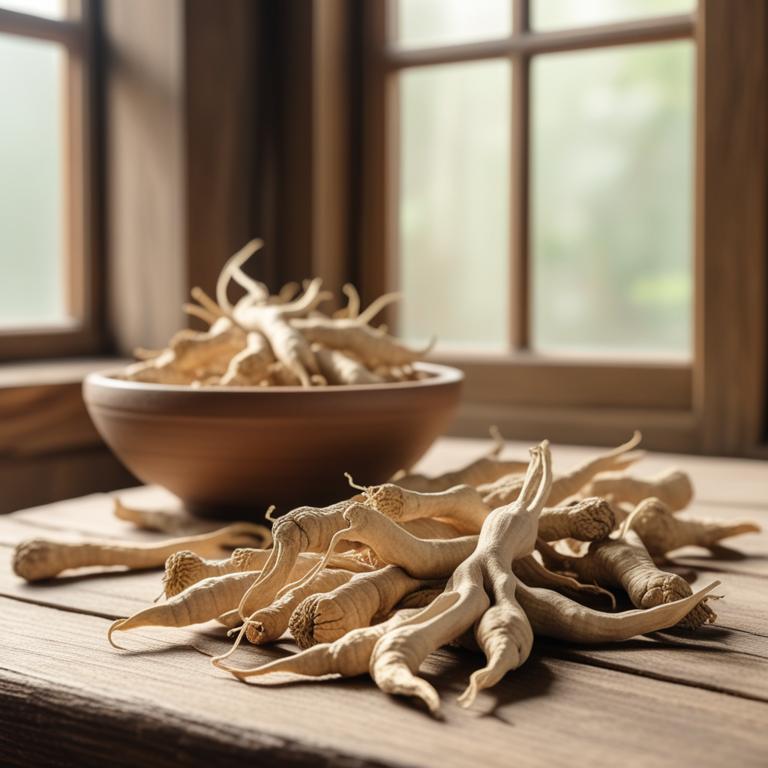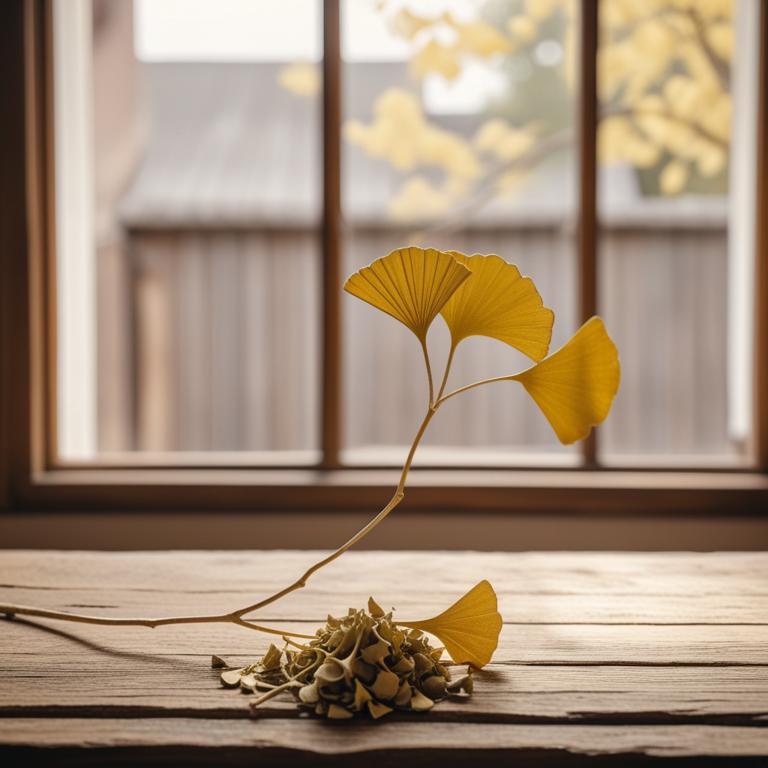Updated: Dec 1, 2024
Hiccups: Exploring the Reasons and Herbal Solutions
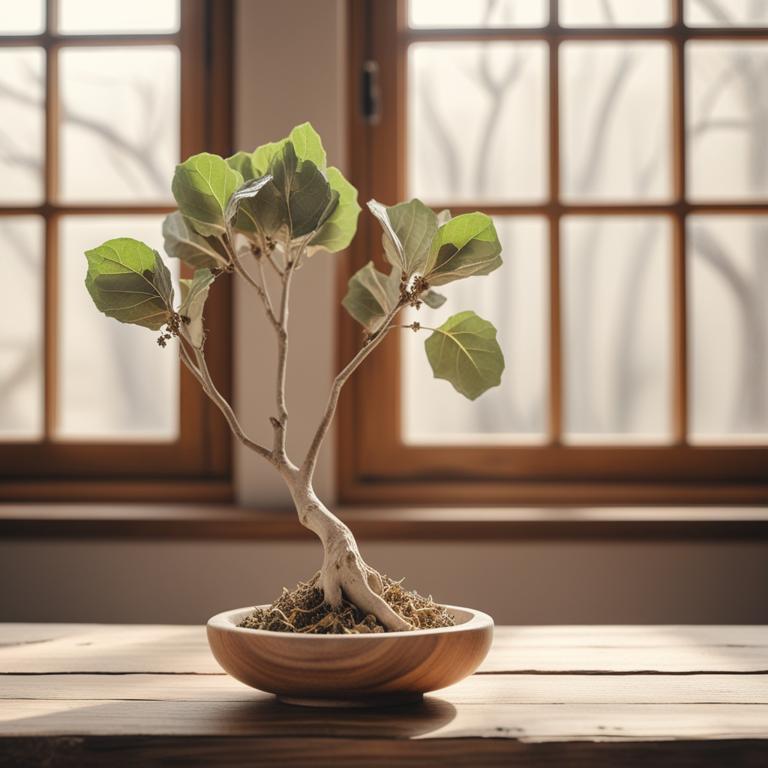
Hiccups are sudden, involuntary contractions of the diaphragm, which can be quite annoying and disrupt your daily life.
They can occur while eating, drinking, or even during stressful situations, and can be quite embarrassing. The exact cause of hiccups is not fully understood, but it's often related to eating too quickly, swallowing air, or irritations in the nerves that control the diaphragm. Some herbal remedies have been used to help alleviate hiccup episodes. Fennel seeds, for example, have been traditionally used to calm the diaphragm and relieve hiccups.
You can make a tea by steeping fennel seeds in hot water or use them in a warm compress to apply directly to the stomach. Ginger is another herb that has anti-inflammatory properties, which can help soothe the diaphragm and stop hiccups. You can make a ginger tea by boiling fresh ginger in water or take it in capsule form. Chamomile is also used to calm the nerves and relax the diaphragm, making it easier to breathe and eliminating hiccups. You can make a chamomile tea by steeping dried flowers in hot water.
These herbal remedies can be a natural and effective way to stop hiccups and get back to your daily life.
Table of Contents
What are the reasons for the occurrence of hiccups?
The main causes of hiccups are often related to how we eat, drink, and breathe.
Eating too fast can cause hiccups because the food goes down the throat too quickly, and the diaphragm (the muscle that helps us breathe) gets irritated. This irritation can make the diaphragm contract and relax too fast, leading to the characteristic hiccup sound. Drinking too much can also cause hiccups, especially if we drink too quickly or eat too soon after drinking.
This can make the diaphragm work harder and get irritated, leading to hiccups. Swallowing air, also known as belching, can cause hiccups because the air gets trapped in the stomach and can irritate the diaphragm. Coughing can cause hiccups because the sudden contraction of the diaphragm during a cough can lead to the hiccup sound. Additionally, nerve irritation can cause hiccups because the nerves that control the diaphragm can get irritated and cause it to contract and relax too fast.
This can be caused by various factors, such as eating spicy foods, stress, or even a mild illness.
What are the benefits of using herbs for the prevention of hiccups?
Using herbs to cure hiccups has been a popular remedy for centuries.
One of the main benefits is that herbs are often natural and don't have any harsh side effects. They can be easily grown at home, making them a convenient solution. Some herbs have antispasmodic properties, which help to calm the diaphragm and stop the hiccup spasms.
Others have a sedative effect, which can help to relax the body and mind, making it easier to get rid of hiccups. Additionally, herbs like these can be consumed as teas, which can be soothing and comforting. They can also be added to food or used in cooking, making them a tasty way to cure hiccups.
Furthermore, some herbs have been shown to have anti-inflammatory properties, which can help to soothe the stomach and alleviate other related symptoms.
What are the primary medical herbs used to treat hiccups?

Herbs have been used for centuries to cure hiccups, and they're still effective today.
One of the best herbs for hiccups is Zingiber officinale, or ginger. Ginger works by warming up the digestive system and calming the nerves, which can help stop hiccups. It also has anti-inflammatory properties, which can help soothe irritated muscles and tissues. Another herb that can help with hiccups is Piper nigrum, or black pepper. Black pepper has a compound called piperine, which can help relax the diaphragm and stop hiccup spasms. This makes it a great natural remedy for hiccups. Fennel, or Foeniculum vulgare, is also a good herb to use for hiccups. Fennel seeds can help calm the stomach and reduce inflammation, which can help stop hiccups.
Fennel is also a natural antacid, which can help neutralize stomach acid and relieve discomfort. Cinnamon, or Cinnamomum verum, is another herb that can help with hiccups. Cinnamon has a compound called cinnamaldehyde, which has natural antispasmodic properties. This means that it can help calm down spasms in the diaphragm and stop hiccups. Cumin, or Cuminum cyminum, is also a good herb to use for hiccups. Cumin seeds can help relax the stomach and reduce inflammation, which can help stop hiccups. Cumin also has a compound called cuminaldehyde, which has natural antispasmodic properties. These herbs can be used in different ways to help with hiccups, such as drinking ginger tea or taking fennel seeds in capsule form. Some people even use a combination of herbs to help stop hiccups.
It's worth noting that hiccups can be caused by a variety of things, including eating too quickly or drinking too much, so it's a good idea to try to identify the cause of the hiccups and address it.
What are the top herbal preparations used to cure hiccups?
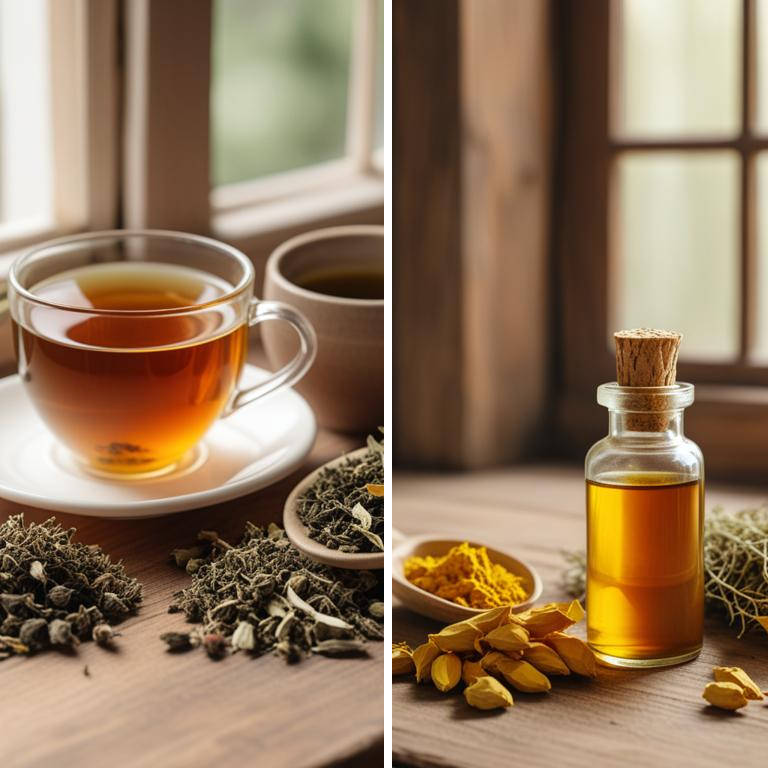
If you have hiccups, herbal preparations can be a good way to soothe them.
One way is to make a decoction by simmering herbs like ginger, fennel, or chamomile in water. The heat helps break down the active ingredients, which can then be easily absorbed by the body. Another option is an infusion, where you steep herbs like peppermint or lemon balm in hot water to make a tea. This can help calm the nervous system, which can be irritated when you have hiccups.
You can also drink a pre-made herbal tea, like one containing licorice root or chamomile. Some people find it helpful to take a tincture, a concentrated liquid extract of herbs like angelica or dill. Tinctures are usually taken in small amounts, and can be added to water or taken straight. Gargling with a herbal solution can also be beneficial. For example, you can gargle with a mixture of water and herbs like thyme or eucalyptus to help calm the throat muscles.
This can help stop the hiccups by soothing the area that's causing them.
Additional Resources:
What herbs are best avoided when experiencing hiccups?
If you have hiccups, it's best to be careful with certain herbs.
Mentha x piperita, also known as peppermint, can be a problem because it's a natural stimulant that can irritate your stomach and make your hiccups worse. Salvia officinalis, or sage, can also be a concern, as it can slow down digestion and make your hiccups last longer.
Similarly, Rosmarinus officinalis, or rosemary, can be a bit of a troublemaker because it's known to irritate your stomach and cause your muscles to contract, which can make your hiccups more intense. Thymus vulgaris, or thyme, can also be a problem because it can stimulate your digestive system and make your hiccups worse.
Lastly, Juniperus communis, or juniper, can be a concern because it's a natural diuretic that can cause your body to release fluid, which can irritate your stomach and make your hiccups more uncomfortable.
FAQ
Are there any specific herbs that can prevent hiccups?
Some people swear by ginger to stop hiccups.
You can try drinking ginger tea or sucking on a piece of fresh ginger. Another option is fennel, which is often used to calm the digestive system.
Fennel tea or seeds can help relax the muscles that cause hiccups, giving your body a chance to recover.
Is it safe to use herbal remedies for hiccups during pregnancy?
Using herbal remedies for hiccups during pregnancy is generally safe if chosen carefully.
Fennel, ginger, and peppermint are commonly used herbs that may help soothe hiccups. However, always check the ingredients and ensure they're organic and free of additives.
Some herbal teas, like chamomile, can also be a gentle solution.
Are there any herbs that can reduce the frequency of hiccups?
Some herbs may help with hiccups.
Ginger, for example, has natural soothing properties that can calm the nerves and stop hiccup spasms. Fennel is another herb that's said to ease hiccup discomfort.
Its mild anise flavor can help calm the stomach, which may also help reduce hiccup frequency.
Related Articles
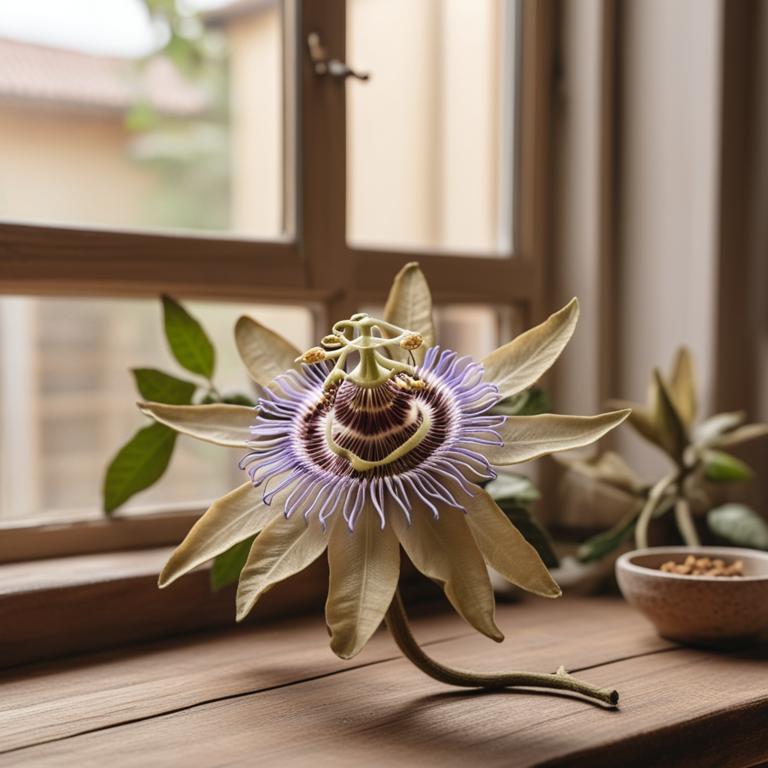
Dizziness: Causes, Symptoms, and Natural Relief with Medicinal Herbs and Preparations
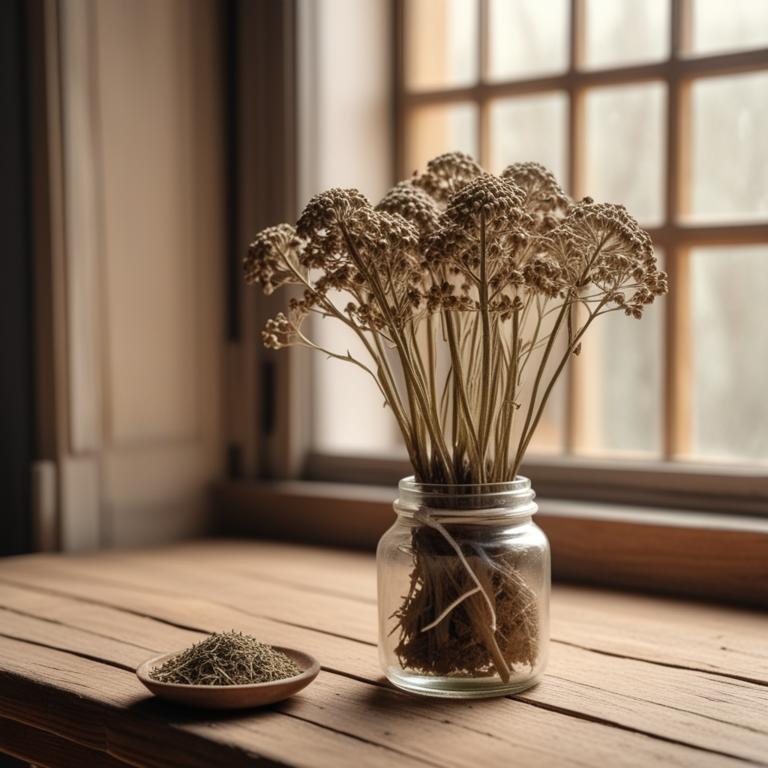
Breaking Down Depression: Causes, Symptoms, and Herbal Remedies
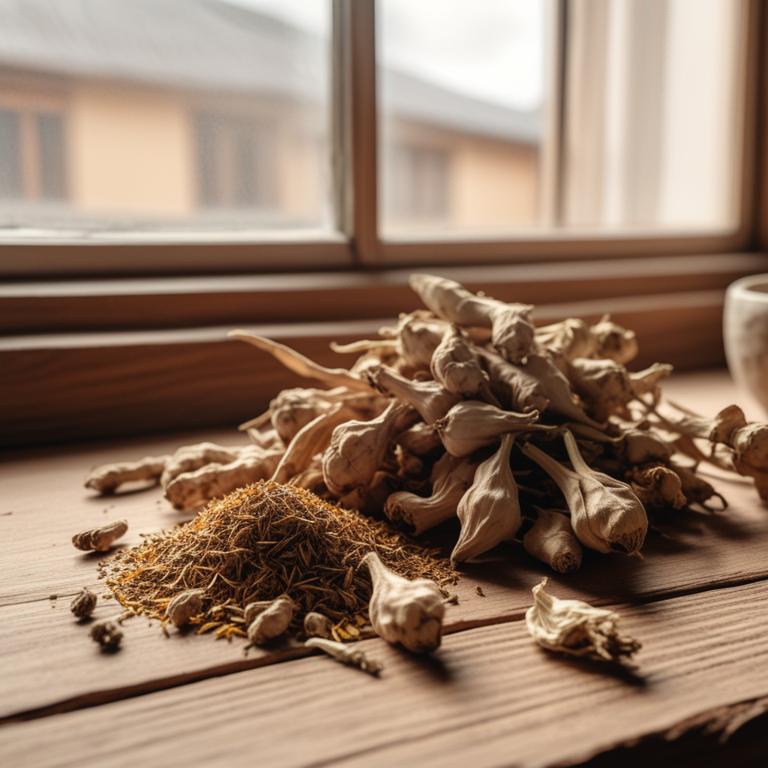
One Side Headache: Causes, Herbal Remedies, and Natural Cures
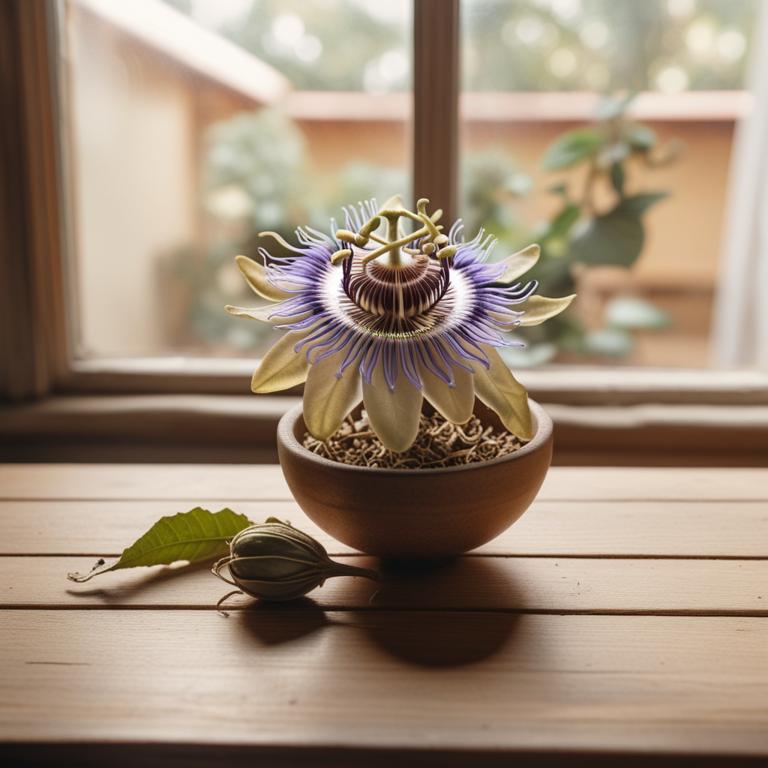
Understanding Insomnia: Causes, Medicinal Herbs, and Herbal Remedies
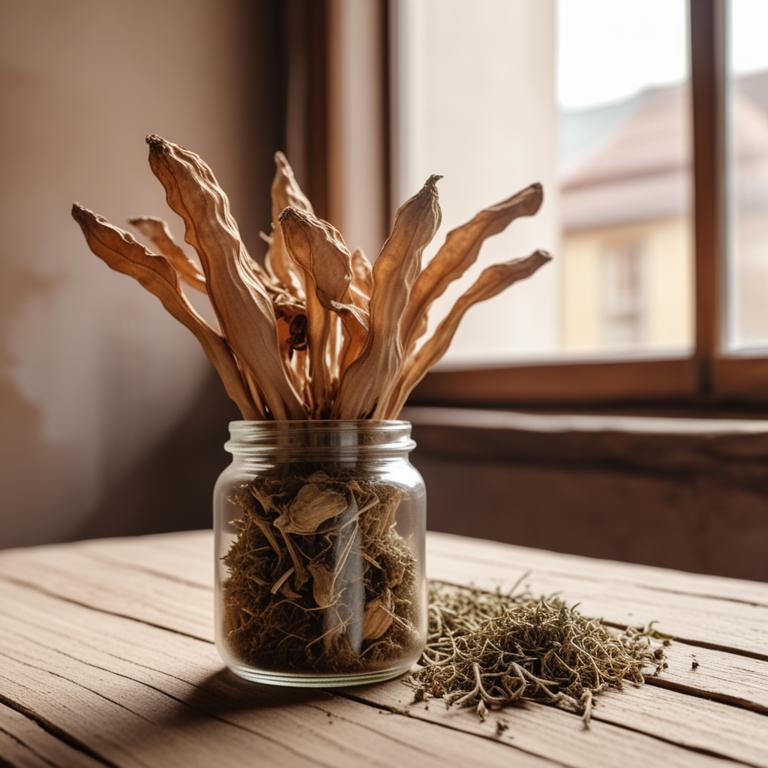
Causes and Herbal Preparations for Ear Infection Relief




